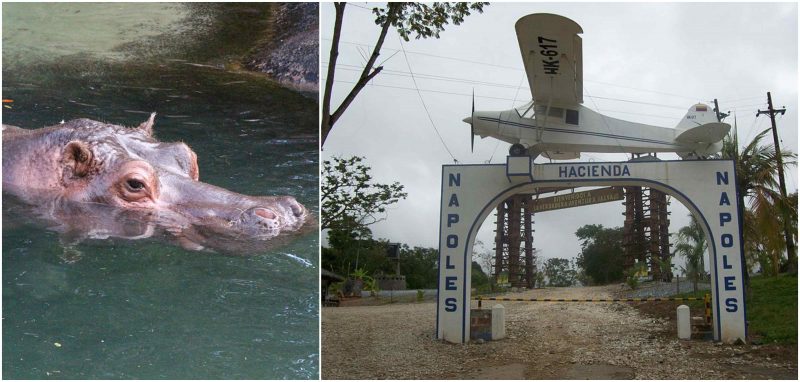Everybody knows that the hippopotamus is big. But how big? Yes, we have those details coming right up: The hippo, native to Africa, has an average length of nearly 15 feet and a weight of 7,000 pounds. It’s the third largest land mammal on the continent, with a lifespan of 50 years. Being excellent swimmers, the hippos spend their days under water in groups, while during the night, they search for food.
Even though the hippo might look fun and peaceful, may we hasten to assure you, it is one of the most aggressive animals on the planet. Besides constantly fighting among themselves, hippos are well known for attacking humans. Each year, nearly 3,000 people die as a result of a hippo attack, making them deadlier than snakes or lions.
The hippo can be found in 29 African countries. However, several years ago, free-roaming hippos were discovered on another continent, far from Africa. Locals in Colombia alerted the authorities about a strange animal never seen before. So how did this slow-moving, massive animal appear in a land that is almost 6,000 miles from its native continent? The answer is this: They were brought over by a man as deadly and notorious as the hippos, the Colombian crime kingpin Pablo Escobar.
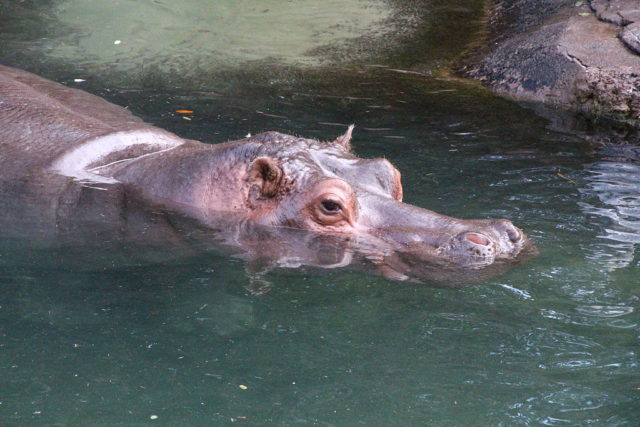
The famous drug dealer owned 80 percent of the world’s cocaine trade during the peak of his career and earned $420 million per week. With an amazing accumulated wealth of $30 billion, the drug lord was proclaimed to be the seventh richest man in the world by Forbes magazine.
So, when you are this rich and you want the entire world to know, buying stuff other people can’t buy seems to be a normal thing. Born and raised in Medellin, the ex-carjacker decided to move away from the city once he became rich and famous, so in 1978, he bought 7.7 square miles of land some 110 miles away from Medellin, where he built an extravagant residence, the Hacienda Napoles.
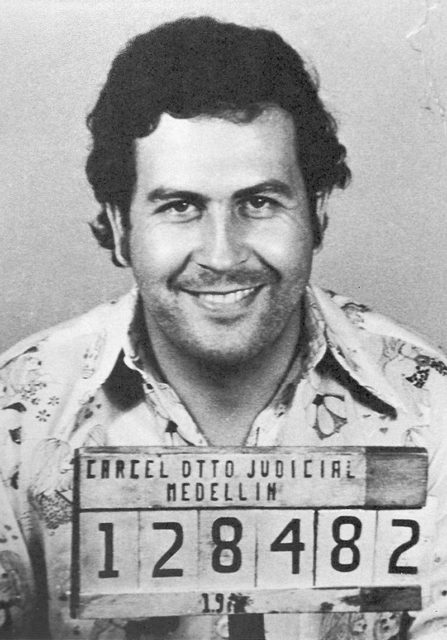
Besides the luxurious house, the Hacienda Napoles offered other amenities that satisfied Escobar’s needs and desires. An airstrip was built next to the house, used to fly Pablo’s product. A helipad was added as well, to accommodate Escobar’s guests for his parties, attended by beauty queens, politicians, and businessmen.
The drug lord had a bullring made, where he held not only bull fights but also concerts for his friends. The entrance of the property was marked with a gate with a plane sitting on top of it. According to rumor, this was the plane that Pablo used for his first smuggling of cocaine into the United States. The Hacienda Napoles had 14 manmade lakes, where El Padron and his friends water-skiied and had a good time. Last but not least, Pablo Escobar established his private zoo, where he had elephants, giraffes, ostriches … and the aforementioned hippos.
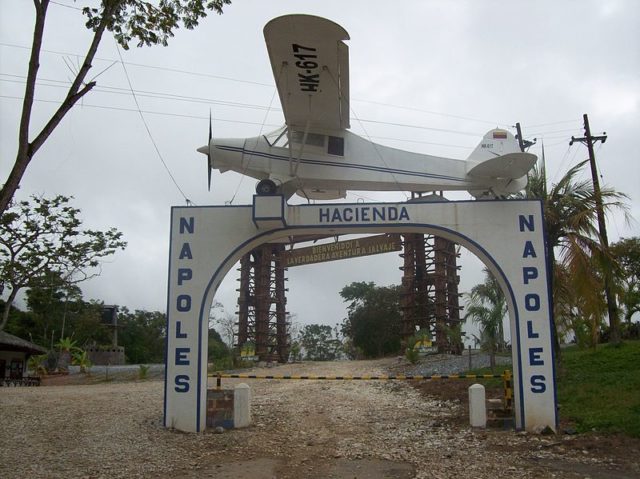
The four hippos, one male and three female hippos, were smuggled in from the United States. Hacienda Napoles proved to be an excellent habitat for the large mammals; the animals had all the water and grass they needed, plus the hot weather they were used to. While Escobar was still alive, the animals were taken care of, and he opened the zoo doors to all visitors. Buses with children arrived at the property daily, strengthening Escobar’s reputation as a modern Robin Hood, which he earned by helping the poor in Medellin.
But everything changed when the state of Colombia declared war on the notorious criminal. When Escobar fled Hacienda Napoles and became a fugitive, the zoo animals were left to starve. Luckily for them, the property was seized by the Colombian government after Escobar’s death, and most of the animals were sent to zoos around the country. This was not the case with the hippos. The reason is that the authorities did not want to struggle with the dangerous and huge animals, so they decided to leave them be. Soon after, the mighty hippos managed to break the fence of the estate and escape into the Colombian wilderness.
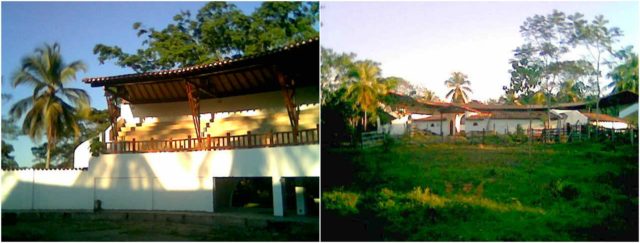
The initial four soon began to reproduce, and there are estimations that around 40 hippos currently live in Colombia. Around 26 of them are still residing in the territory of Hacienda Napoles, while others have left and found a home in the Colombian jungle, which proved to be an excellent environment for the animals. According to experts, the number of hippos might reach 100 in a period of 10 years, if not managed. Environmentalists fear that the unusual animal might bring destabilization in the Colombian flora and fauna, with the hippos being so dominant and aggressive.
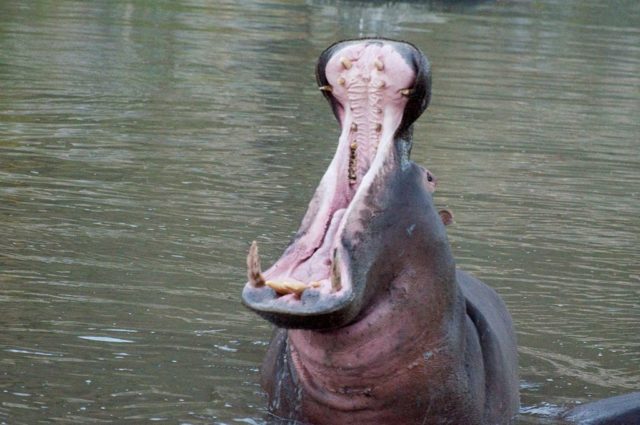
There have been cases of the animals doing damage on farms and private properties, and once a hippo entered a city. Naturally, the terrified people alerted the authorities and the story of Escobar’s hippos soon became known around the globe.
Currently, the large mammals are a tourist attraction, with many people visiting their habitat. In 2010, National Geographic made a documentary about the dangerous animals, titled Cocaine Hippos. After this, the government took precautions and castrated some of the animals in order to control their reproduction, but took no action to eliminate them. The locals have grown fond of the hippos, and even though they might be one of the most dangerous animals in the world, the Colombian hippos haven’t harmed a single human thus far.
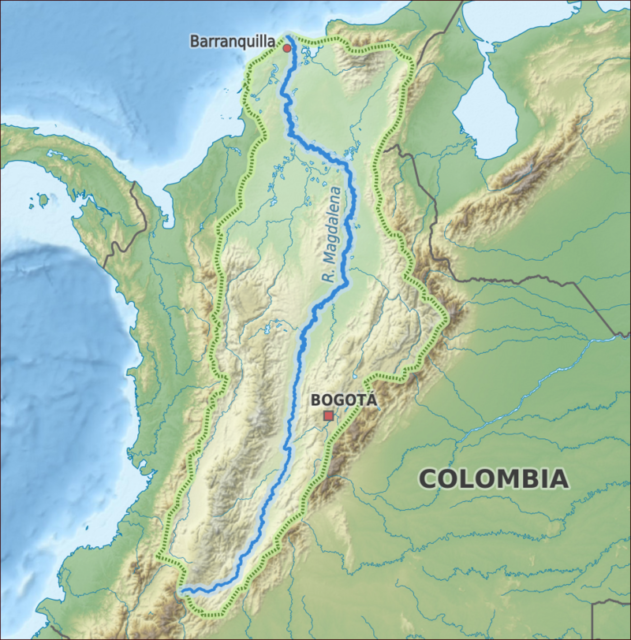
The Escobar family fought the Colombian government over the property of Hacienda Napoles, but in the end, they lost, so the estate remains in state ownership. The Hacienda has been transformed into a theme park. A water park was constructed and a zoo was built, with many exotic animals brought in. But no new hippos as far as we know.
People can also visit Escobar’s old house, and see his car collection, which is now burned. The bullring was transformed into an African museum. With all this, the charismatic hippos are still the most popular attractions in the region, and also serve as a reminder of the power and wealth of Pablo Escobar.
